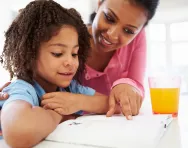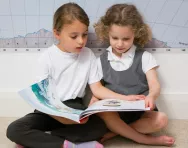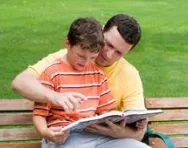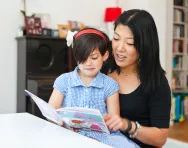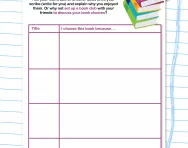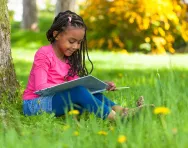Important update from TheSchoolRun
For the past 13 years, TheSchoolRun has been run by a small team of mums working from home, dedicated to providing quality educational resources to primary school parents. Unfortunately, rising supplier costs and falling revenue have made it impossible for us to continue operating, and we’ve had to make the difficult decision to close. The good news: We’ve arranged for another educational provider to take over many of our resources. These will be hosted on a new portal, where the content will be updated and expanded to support your child’s learning.
What this means for subscribers:
- Your subscription is still active, and for now, you can keep using the website as normal — just log in with your usual details to access all our articles and resources*.
- In a few months, all resources will move to the new portal. You’ll continue to have access there until your subscription ends. We’ll send you full details nearer the time.
- As a thank you for your support, we’ll also be sending you 16 primary school eBooks (worth £108.84) to download and keep.
A few changes to be aware of:
- The Learning Journey weekly email has ended, but your child’s plan will still be updated on your dashboard each Monday. Just log in to see the recommended worksheets.
- The 11+ weekly emails have now ended. We sent you all the remaining emails in the series at the end of March — please check your inbox (and spam folder) if you haven’t seen them. You can also follow the full programme here: 11+ Learning Journey.
If you have any questions, please contact us at [email protected]. Thank you for being part of our journey it’s been a privilege to support your family’s learning.
*If you need to reset your password, it will still work as usual. Please check your spam folder if the reset email doesn’t appear in your inbox.
Reading series: how they help your child
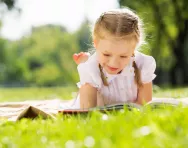
If you have a child of a certain age, chances are you’re well acquainted – and, quite possibly, thoroughly fed up – with children’s reading series. From Rainbow Magic to Beast Quest, these collections, some of which have amassed hundreds of titles, are irresistible to many children. So what is it that makes them so appealing to primary school kids, and does limiting their reading matter to such a narrow field do them any harm?
What are reading series?
Reading series are collections of books based around a set theme – for example, fairies (the infamous Rainbow Magic books), beasts (Beast Quest), pets (Animal Ark) or dinosaurs (Astrosaurs). ‘They feature familiar characters and a consistent narrative structure with a set sequence of events in each book, such as adventure, peril and resolution,’ explains Irene Picton, project manager of the Young Readers Programme at the National Literacy Trust.
Most collections are aimed at children between the ages of five and eight – a time when they’re transitioning from school reading schemes to reading independently. However, many series also include titles aimed at younger readers, such as ‘early readers’ and picture books, as well as books for older children, like choose your own adventure stories.
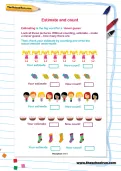
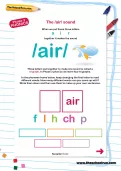
Unique Reception Learning Programme!
- Weekly maths & English worksheets direct to your inbox
- Follows the National Curriculum
- Keeps your child's learning on track
How are they created?
Reading series are often (though not always) written by committee. Working Partners, the company behind many of the most successful series, works by coming up with an idea for a book in-house and writing a detailed outline. The editorial team then asks a number of writers to produce several sample chapters, and then chooses the best to write the whole book. The titles are usually published under a pseudonym – Daisy Meadows for Rainbow Magic; Alex Blade for Beast Quest – and each series includes work by a number of different authors.
‘Although there is a lot of snobbery about writing by committee, there are benefits,’ says Irene. ‘What the publishers are looking for is simplicity, and a lot of expertise from educationalists goes into the books to make sure that the vocabulary and structure are at exactly the right level for the intended audience.’ And although some reading series authors are unknowns, many established writers also work on them, including Narinder Dhami, the author of Bend it like Beckham.
How do reading series benefit primary school children?
The number one aim of reading series is to help children on their journey to becoming an independent reader. ‘The formulaic plots and consistent vocabulary help them to practise their reading as they move on from picture books and reading schemes,’ explains Irene. ‘They’re a natural next step for many children.’
Although reading series are often criticised for failing to stretch children, the comforting nature of a story that is easy to read can help them discover a genuine love of reading. ‘The books may not be very challenging, but we all enjoy an easy, relaxing read at times,’ Irene says. ‘Engaging with reading series helps children to identify themselves as readers, which is a really good thing.’
The collectible nature of series also benefits children. ‘They love building a collection, and reading series automatically give children the next book to go onto,’ Irene says. ‘And because their peers are often reading the same books, these series give children natural opportunities to discuss what they’re reading, which is a vital skill.’
What are the drawbacks?
For all that children love reading series, parents often have other opinions. In particular, it’s easy to worry that getting hooked on a series limits children’s reading horizons, and that with their repetitive vocabulary and structure, the books fail to provide a challenge.
‘Parents often feel disappointed that their children are reading these books rather than children’s books that have been enjoyed across the generations, and complain about how boring they are,’ agrees Irene. ‘However, it’s important to remember that they’re written for a child audience, not for adults, and that all reading is good. It’s obviously important to encourage children to read as widely as possible, but don’t despair – the phase doesn’t last forever.’
Making the most of reading series
Although the reading series stage may seem one to be endured rather than enjoyed, there are ways to help your child get the most out of the books. ‘As with all books, it’s important to talk to your child about what they’re reading,’ says Irene. ‘Because they’re predictable, reading series are great for encouraging children to think about what the characters are doing and what might happen next – it’s really nice for children to feel they have that insight into the story.’
You can think up activities to do alongside reading the books, such as designing your own beast or drawing a map of Fairyland. The series’ websites often have good ideas to try at home, as well as online games and quizzes. ‘You can also help your child to explore other standalone books that have similar themes, broadening their reading habits,’ Irene suggests. ‘Libraries will always be happy to help you find books that will appeal to your child’s interests.’
Above all, try not to belittle your child’s choice of reading matter. ‘It’s really important not to criticise their reading choices, or imply that they’re not really reading; any reading practice is good,’ Irene adds.
Six of the best reading series for independent readers
Rainbow Magic by Daisy Meadows (Orchard) Probably the best known reading series, with sub-categories including the Pop Star Fairies, Princess Fairies, Green Fairies and Unicorn Magic and over 10 million copies sold. New titles in the series are very topical – Greta the Earth Fairy and Jacinda the Peace Fairy are new for 2020.
Beast Quest by Alex Blade (Orchard) Bestselling fantasy adventures for children aged six to nine, where the protagonists battle against deadly beasts and wizards. Over 60 titles have been published and a "new generation" Beast Quest with new heroes was published in 2019 (the first title is Beast Quest: New Blood).
Star Wars Rebels by Lauren Nesworthy (DK) Part of the DK Reads series, Star Wars Rebels is a guided reading series with three levels designed to help young readers who are getting to grips with blending and decoding.
Animal Ark by Lucy Daniels (Hodder) A worldwide bestseller featuring Mandy Hope, who helps out at her dad’s veterinary practice. There are over 70 titles in the series, and over 10 million books have been sold.
Frankie's Magic Football (Little, Brown) Footballer and author Frank Lampard is an ambassador of the National Literacy Trust; the Frankie's Magic Football series for readers aged 5+ includes 18 titles.
Astrosaurs by Steve Cole (Red Fox) With over 20 books, Astrosaurs is a sci-fi series featuring a cast of space-travelling dinosaurs with an accompanying trading cards series.
